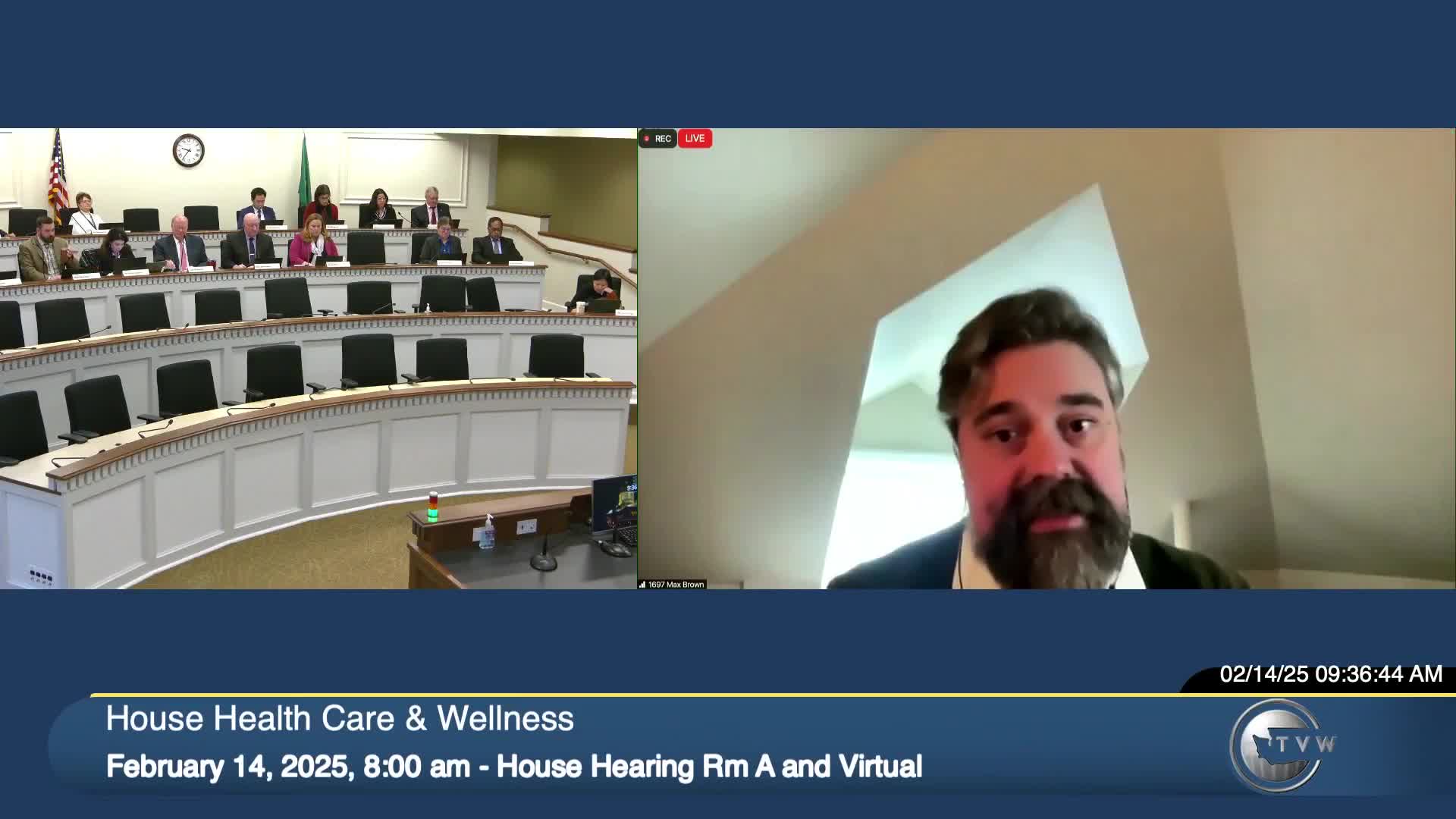Article not found
This article is no longer available. But don't worry—we've gathered other articles that discuss the same topic.
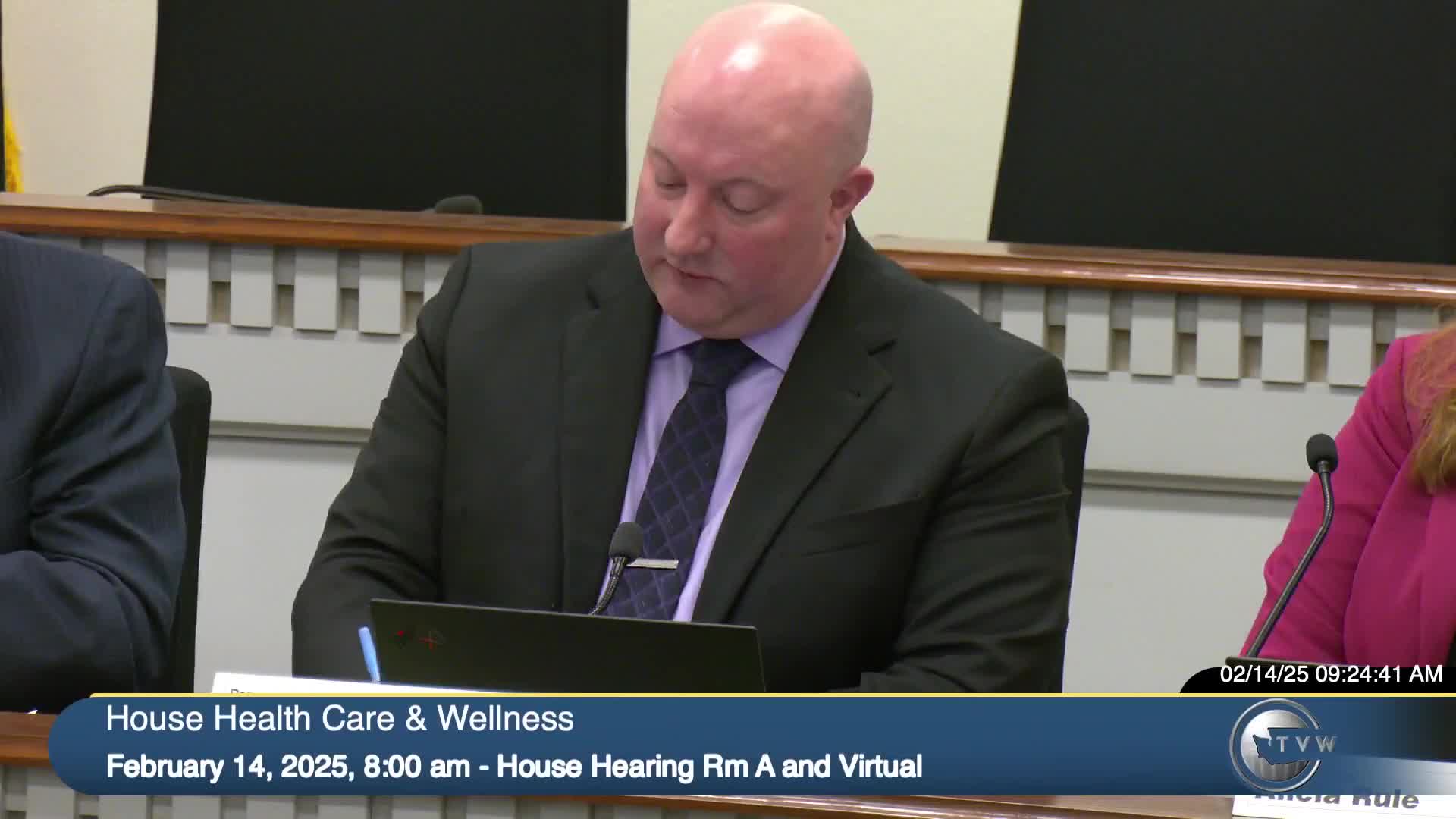
Bill would require Washington to consider federal newborn-screening recommendations and create dedicated screening fee account
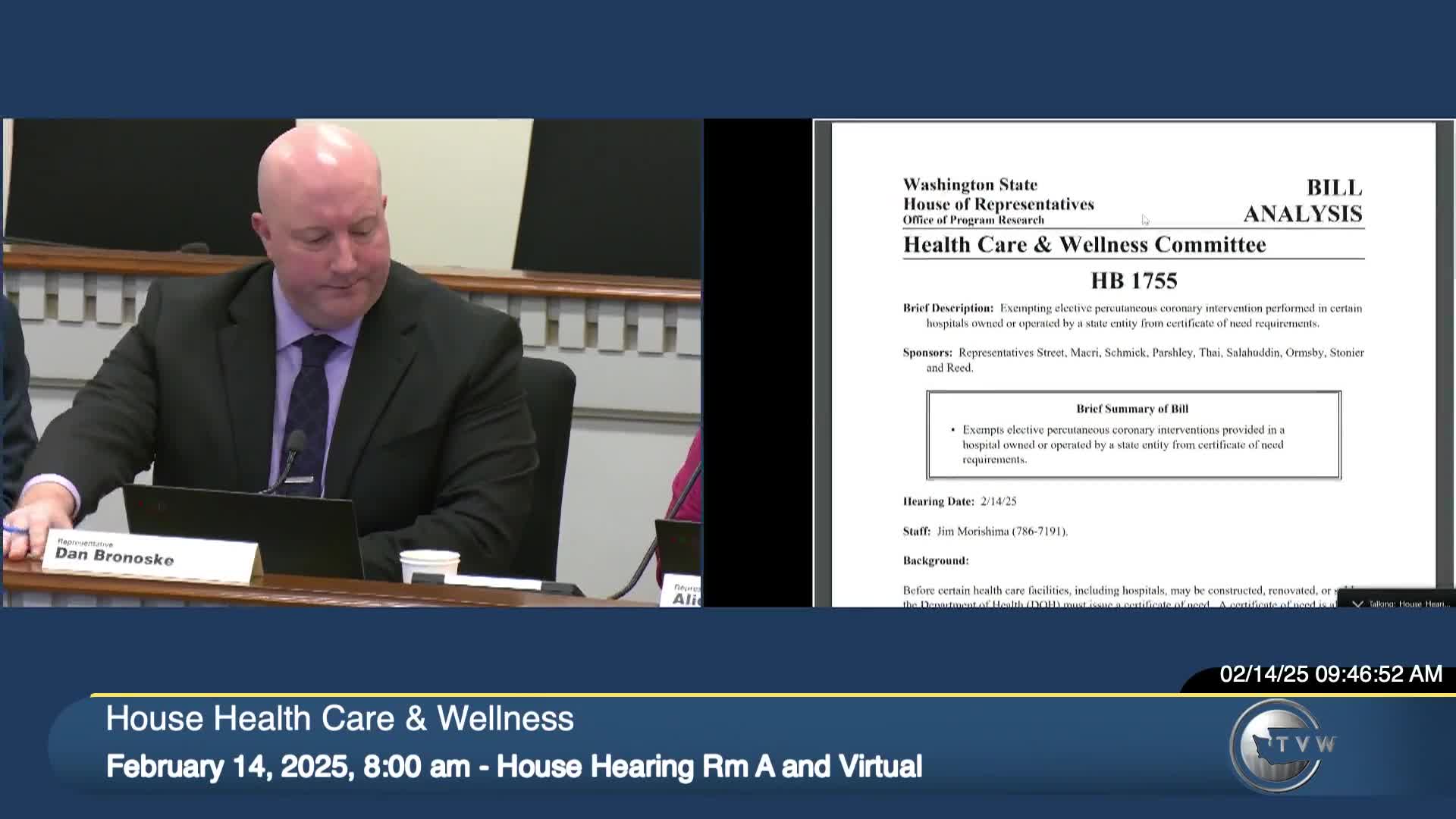
Proposal seeks certificate-of-need exemption for elective PCI at state hospitals after years of rule discussions
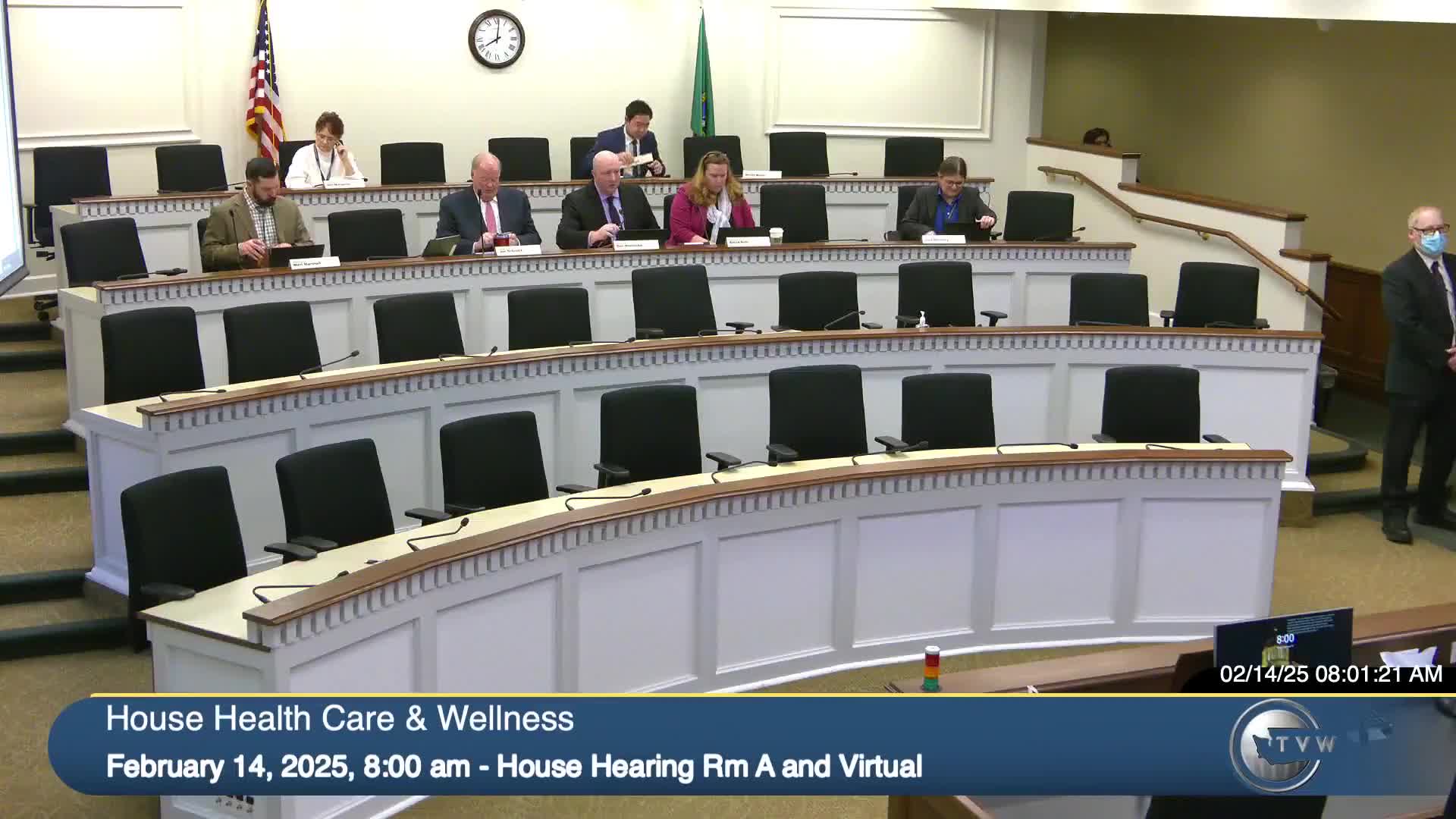
Bill would create EMS behavioral-health training, optional advanced endorsement and pilots
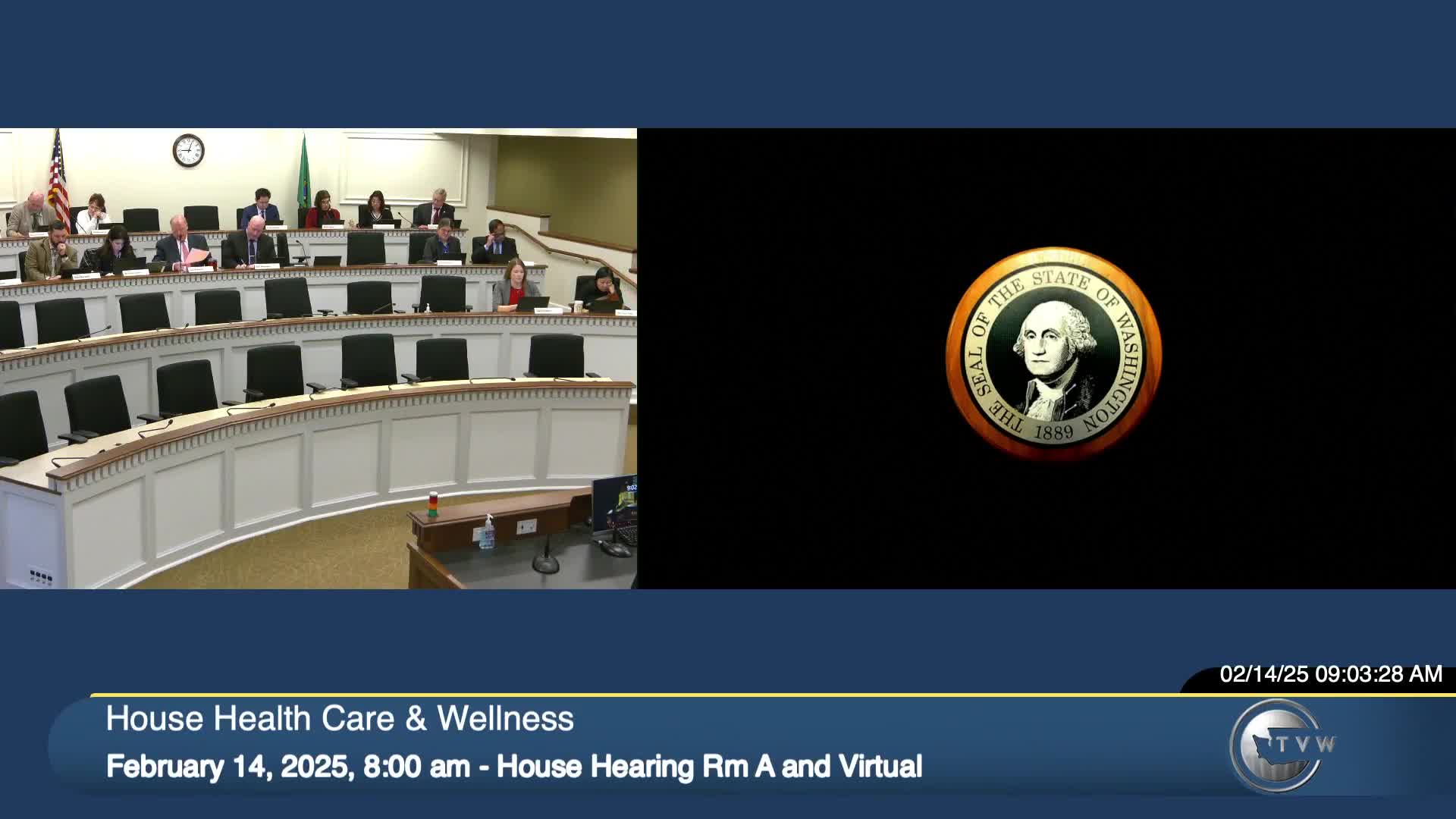
Bill would let ambulances transport patients to urgent care and behavioral-health centers, insurers to cover transports
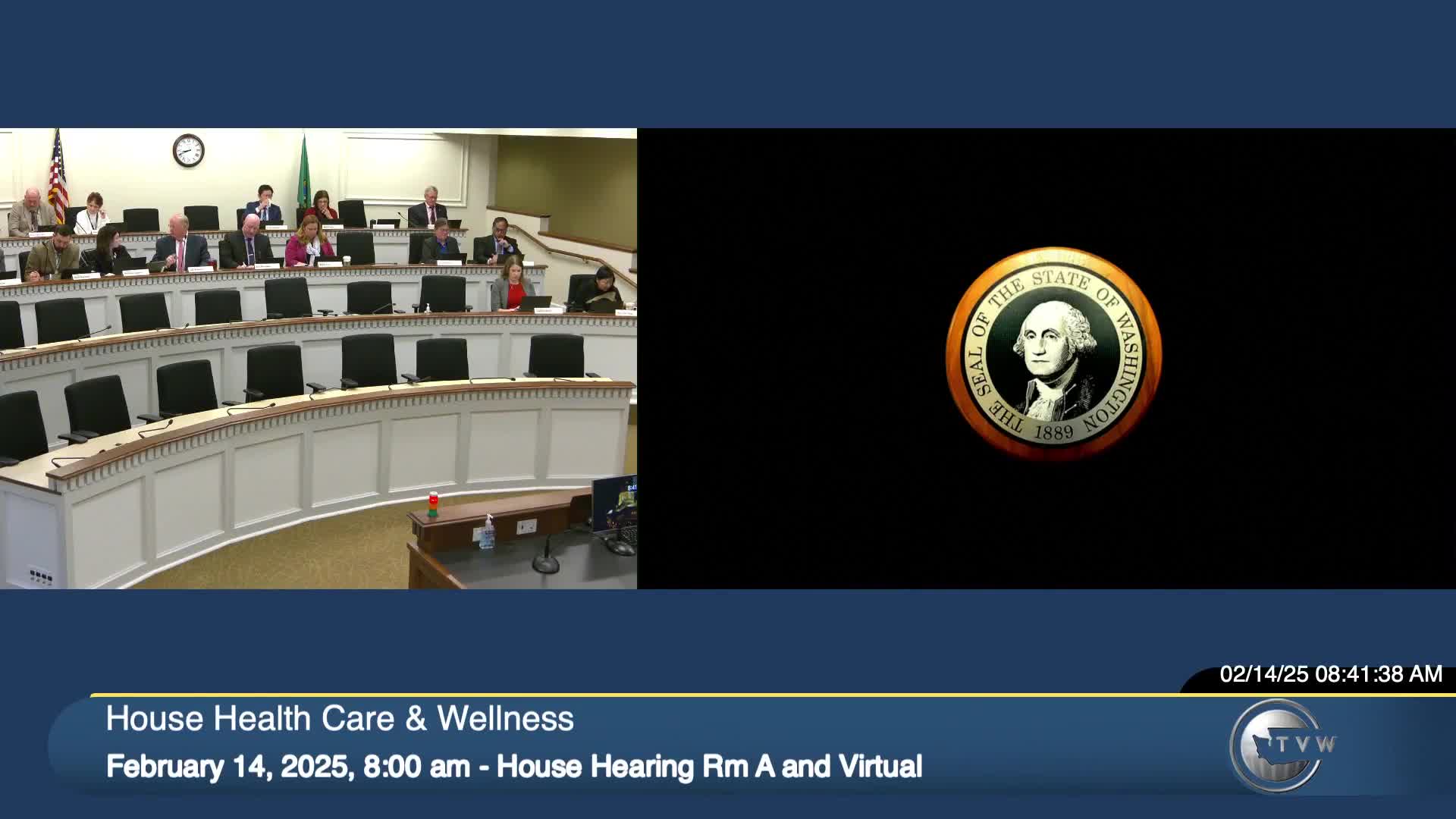
Bill would define co-response teams, add peer-support protections and workers' comp presumption
